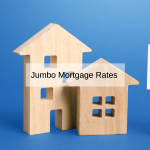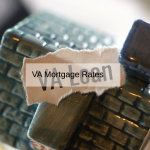Deciding on the best home equity loan rates for buying a house is a pivotal step in the home buying process. With various loan options available, each catering to different financial situations and preferences, understanding the pros and cons of each is crucial. In this guide, we'll explore the different types of loans for buying a house and help you determine which one suits your needs best.
Understanding Mortgage Loans
What Are Mortgage Loans?
Mortgage loans are financial instruments used to finance the purchase of a home. They typically involve borrowing a large sum of money from a lender and using the property as collateral for the loan.
Types of Mortgage Loans:
2.1. Conventional Loans: Conventional loans are mortgage loans that are not guaranteed or insured by the government. They typically require higher credit scores and larger down payments but may offer competitive interest rates and terms.
2.2. FHA Loans: FHA loans are backed by the Federal Housing Administration and are popular among first-time homebuyers and those with lower credit scores. They require lower down payments and have more lenient qualification requirements than conventional loans.
2.3. VA Loans: VA loans are guaranteed by the Department of Veterans Affairs and are available to eligible active-duty service members, veterans, and their spouses. They often require no down payment and have competitive interest rates, making them an attractive option for military personnel.
2.4. USDA Loans:USDA home loan, backed by the U.S. Department of Agriculture, are designed to help low to moderate-income borrowers in rural areas purchase homes. They offer 100% financing and flexible credit requirements.
Determining the Best Loan for Your Needs
1. Consider Your Financial Situation: Assess your financial situation, including your income, credit score, debt-to-income ratio, and available funds for a down payment and closing costs.
2. Evaluate Loan Requirements: Review the eligibility criteria, down payment requirements, interest rates, and repayment terms for each type of loan to determine which one aligns best with your financial goals and circumstances.
3. Compare Interest Rates: Compare interest rates from multiple lenders for each type of loan to find the most competitive rates and terms. Even a slight difference in interest rates can significantly impact the overall cost of the loan.
4. Factor in Down Payment and Closing Costs: Consider how much you can afford to put towards a down payment and closing costs. Some loans require higher down payments, while others offer low or no down payment options.
Navigating the Loan Application Process
1. Get Pre-Approved: Obtain pre-approval for a mortgage loan from a reputable lender before you start house hunting. Pre-approval demonstrates to sellers that you are a serious buyer and strengthens your bargaining power.
2. Gather Documentation: Prepare necessary documentation, including proof of income, employment history, tax returns, bank statements, and information about your assets and debts, to streamline the loan application process.
3. Work with a Trusted Lender: Choose a reputable lender with a track record of excellent customer service, competitive rates, and transparent lending practices. Consider seeking recommendations from friends, family, or real estate professionals.
Finalizing Your Home Purchase
1. Review Loan Terms Carefully: Carefully review the terms and conditions of the loan agreement before signing. Pay attention to interest rates, repayment terms, fees, and any prepayment penalties or contingencies.
2. Attend the Closing Meeting: Attend the closing meeting with your real estate agent and lender to finalize the purchase transaction. Review and sign the necessary documents, pay closing costs and fees, and receive the keys to your new home.
3. Stay Informed and Engaged: Stay informed throughout the home buying process and communicate openly with your lender and real estate professionals. Ask questions, seek clarification on any terms or issues, and ensure you understand your rights and obligations as a borrower.
In choosing the best mobile home loans for buying a house requires careful consideration of your financial situation, loan requirements, and personal preferences. Whether you opt for a conventional loan, FHA loan, VA loan, or USDA loan, understanding the features and benefits of each type of loan is essential for making an informed decision. By evaluating your options, comparing rates, and working with trusted professionals, you can secure the financing you need to achieve your dream of homeownership.
Frequently Asked Questions (FAQ) about Finding the Best Loan for Buying a House:
1. What factors should I consider when choosing a loan for buying a house?
When choosing a loan for buying a house, consider factors such as your financial situation, credit score, down payment amount, loan term, interest rate options, and closing costs. It's essential to assess your needs and priorities to find the loan that best suits your circumstances.
2. What types of loans are available for buying a house?
There are several types of loans available for buying a house, including conventional loans, FHA loans, VA loans, USDA loans, and jumbo loan mortgage rates. Each type of loan has its own eligibility requirements, down payment options, and terms, so it's essential to explore your options and choose the one that fits your needs.
3. What is a conventional loan, and how does it differ from other loan types?
A conventional loan is a mortgage that is not insured or guaranteed by the government, such as the Federal Housing Administration (FHA) or the Department of Veterans Affairs (VA). Conventional loans typically require higher credit scores and larger down payments compared to government-backed loans but may offer more flexibility in terms of loan terms and interest rates.
4. What are the benefits of FHA loans for buying a house?
FHA loans are popular among first-time homebuyers and those with less-than-perfect credit because they require lower down payments and have more flexible credit score requirements compared to conventional loans. FHA loans also allow borrowers to finance closing costs and require mortgage insurance, which protects the lender in case of default.
5. Who is eligible for VA loans, and what are the advantages?
VA loans are available to active-duty service members, veterans, and eligible surviving spouses and offer several advantages, including no down payment requirement, no private mortgage insurance (PMI), competitive interest rates, and flexible qualification criteria. VA home loans are backed by the Department of Veterans Affairs and are designed to help military personnel achieve homeownership.
6. What are USDA loans, and who qualifies for them?
USDA loans, also known as rural development loans, are backed by the United States Department of Agriculture and are designed to help low-to-moderate-income borrowers purchase homes in eligible rural and suburban areas. USDA loans offer no down payment options, competitive interest rates, and flexible credit requirements for eligible borrowers.
7. What are jumbo loans, and when are they appropriate for buying a house?
Jumbo loans are mortgages that exceed the conforming loan limits set by government-sponsored entities like Fannie Mae and Freddie Mac. Jumbo loans are typically used to finance higher-priced properties and may require larger down payments, higher credit scores, and stricter eligibility criteria compared to conventional loans.
8. How can I compare loan offers from different lenders?
When comparing loan offers from different lenders, consider factors such as interest rates, loan terms, closing costs, discount points, and lender fees. Use online mortgage calculators and request loan estimates from multiple lenders to evaluate your options and find the most competitive terms.
9. What is the difference between fixed-rate and adjustable-rate mortgages (ARMs)?
Fixed-rate mortgages have a constant interest rate and monthly payment throughout the loan term, providing stability and predictability for borrowers. Adjustable-rate mortgages (ARMs) have interest rates that can fluctuate over time based on market conditions, which can result in lower initial payments but may increase the risk of payment fluctuations in the future.
10. How can I determine which loan is the best option for buying a house?
To determine the best home renovation loan option for buying a house, carefully evaluate your financial situation, compare loan offers from multiple lenders, consider your long-term homeownership goals, and seek guidance from mortgage professionals. Choose the loan that offers the most favorable terms and aligns with your budget and priorities for homeownership.
















